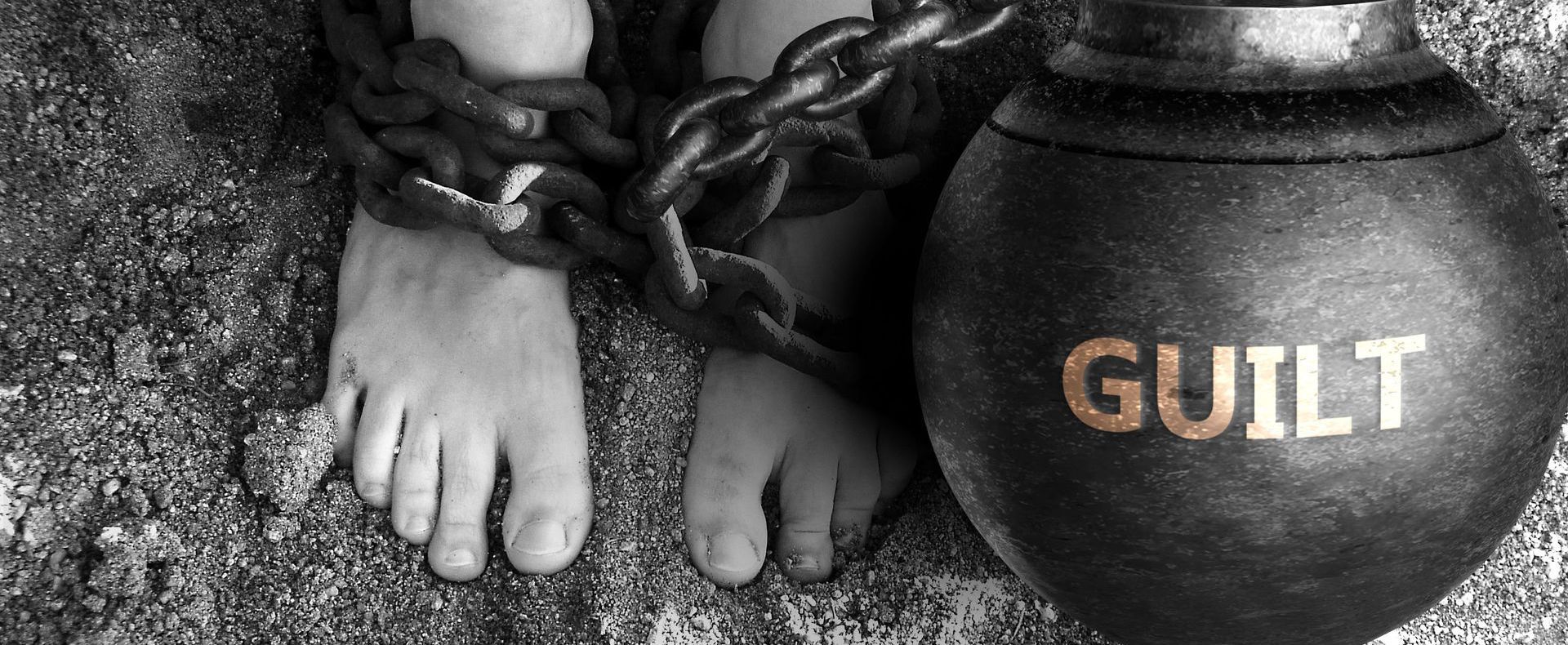Guilt is something so many parents whose child struggles with poor mental health battle. Guilt is a feeling that describes the regret or responsibility we play in a situation, or around the actions we have taken. We often feel guilt about things that did, but also things we have no control over or responsibility for, and things we perceive we should have had control or responsibility over.
We are conditioned to feel guilt - from our parents, our friends, our values, and society at large. It can be a way to share the ‘rights’ and ‘wrongs’ of a civilised society, and we often associate guilty feelings with not living up to certain standards or ideals.
Perfect parenting doesn’t exist, because we’re perfectly imperfect people - without training or reference - but we can still load ourselves with the highest expectations that only lead to guilt when we don’t manage to reach the demands we place on ourselves.
When your child becomes depressed or anxious, there’s a whole stack of guilt waiting just for you.
- Feeling you’ve caused this and should have stopped it somehow
- Feeling you are to blame (for everything!)
- Feeling inadequate when you can’t keep all the plates spinning
- Feeling that you missed the signs
- Being powerless to ‘fix this’
- Having to make decisions that are in your child’s best interests but don’t appear to be immediately compassionate
- Worrying about being a crap parent
- Worrying about spending less time with your other children, your family, your job, your friends, yourself.
- Feeling guilty for spending time on yourself.
- Feeling guilty for not spending time with your child.
- Feeling guilty when they can’t leave the house, have a shower, brush their hair, sleep on a standard sleep schedule, eat vegetables…
Need I go on?
And it creates a sense that guilty is a characteristic you should be ‘fessing up to on your passport or drivers license…Suzanne Alderson, 51 years old, 5ft 11”, Blue Eyes...Eternally Guilty
And that’s understandable. You probably have to bat away utterly ridiculous statements from people who simply don’t get it about “Good parents don’t let their children become depressed” or “Can’t you just make them go to school/eat/stop being anxious.” Did you hear my eyes roll?
Joking aside, because of our state of constant guilt, these comments reinforce the beliefs that we have somehow caused this situation through our poor and pathetic parenting.
NOT TRUE!
You likely didn’t cause this, and you can’t fix it!

What does guilt do to us?
Guilt can actually show us better ways to act and behave, but mainly, from my experience and from supporting other parents, it steals the present from us. It takes away our sense of peace. And it stops us from connecting with our child and significant others in our life.
When you carry associated guilt ( for big things like the state of your child’s mental health to smaller decisions) it changes the lens you see the world through. You start from a place of blame and take every responsibility which can easily transfer into a state of shame where we see our actions or inactions as being a sign of our innate weakness or that we’re uncaring, impotent people. We can begin to feel ashamed of ourselves and the situation we find ourselves in, all layered with guilt for individual situations and decisions. This can lead to us becoming withdrawn, anxious, and depressed ourselves. It cuts connection, as we exist in a state of self berating; flagellating ourselves for what we coulda, woulda, shoulda, and in time, for everything and anything. And all done somewhere in our own heads, locking out the opportunity for empathy, connection, and love from others who may be able to remove the guilt you carry.
A word about your child
If you have made decisions for your child’s benefit, or because you’ve taken the best medical advice, or because of a danger to your child’s safety or life, you have no need to feel guilty. I understand you might, but it isn’t helping you or them now.
Your child will understand in time. You did the very best you could at the time, with the knowledge and capacity you had. They will understand in time. You’re doing the right thing. And it won't help them, because every moment you spend considering the failures of your actions or decisions is a moment you're not present or hopeful or taking care of yourself so you can take care of them.
So how do you manage guilt?
- Recognise it - that it’s happening and the impact it’s having on you. Are you less present because of it? Look at your actions - were they caring? Did you do the best? Be proud of them then! Ask yourself - did I do the best I could in the circumstances?
- Challenge it - is it justified? Really? You might want to explore this with a friend or therapist and it may take time, but the more you can see that carrying guilt for long periods of time for things you’re not in control of is not good for you, the more likely you are to do an Elsa ( let it go) Which leads to…
- Recognise what you’re in control of - feeling guilty for things that are out of your control is a fast track to a lack of mental peace, and such an important step in not becoming consumed by it. You are in control of your behaviour, your responses, and your decisions. You are not in control of others’ responses, behaviours, or decisions, and if you have to make decisions or choices that are hard in response to these actions, you are being compassionate, not callous. You may find yourself in a space where you are having to make choices that are hard, but you are taking them because of someone else’s actions and for their benefit. You have nothing to be guilty for.
- Isolate the guilt - recognise and acknowledge the specifics of what you're feeling guilty of, or you’ll end up feeling responsible for the spread of COVID across the world! If you can understand exactly what you feel guilty for, you can move to make changes around it…
- Make amends if necessary or explain why…if you’ve done something your child doesn’t appreciate or agree with and you’re carrying the guilt for that, share that you understand their feelings and explain your reasons.
- One of the tenets of the Parenting Mental Health community is to assume positive intent, and assuming your own positive intent when you do things that you may later feel guilty about can help you extract you from the situation.
- Change your metrics and expectations - do you expect to have all of the answers? Do you expect life to play out as if it’s on a traditional path? Lower those expectations while your child is ill. Let go of expectations of perfection or having all your stuff together. It's ok not to have all the answers.
- Live in the moment - when we really feel the moment, we can decide from the heart, not the head. Guilt tends to come when we’ve gone against our gut. Be present and feel those emotions. Again, a friend, a therapist, or the peer support in the Parenting Mental Health community can help you work through them. And if you are struggling, ask someone you trust if you should feel guilty. Sometimes we can’t see the truth for all the emotion around it.
- Seek out the good - remind yourself that you’re a good person, you’re doing the best you can, and you’re coming from a loving, caring , nurturing place. Use kind words to remind yourself daily that you’re doing your best.
- Last, but not least at all… FORGIVE YOURSELF! Love doesn’t always come across as red hearts and hugs. Sometimes it looks like hard decisions that feel even harder. You did the best you could with what you knew and felt at the time. Please, let yourself off the hook. You don’t deserve to carry this guilt forever.

